Senior Ansarullah official urges foreign investors to leave 'unsafe' UAE after Yemen's retaliatory strikes
A senior member of Yemen’s popular Ansarullah resistance movement has called upon foreign investors to leave the United Arab Emirates (UAE) after Yemeni armed forces and their allies carried out a large-scale operation against sensitive targets deep inside the country and Saudi Arabia, using domestically-developed ballistic missiles and combat drones.
“Emirati officials disregarded our advice to pull out of the war on Yemen. We advise investors in the UAE to leave because it is no longer a safe country,” Mohammed al-Bukhaiti, a member of Ansarullah's political bureau, told Lebanon’s Arabic-language al-Mayadeen television news network on Monday.
He added, “The UAE did not adhere to a policy of armed neutrality in the region when it decided to be involved in the Saudi-led aggression on Yemen. We have been fairly more patient with the UAE than with Saudi Arabia in order to give it the opportunity to withdraw.”
Bukhaiti highlighted that the UAE will be the scene of direct confrontation between the axis of resistance on one side and the United States and its proxies on the other.
The Ansarullah official then described the ongoing bloody onslaught against Yemen as a US-Israeli project, emphasizing that Riyadh and Abu Dhabi regimes are simply advancing the latter’s agendas in this regard.
“The UAE will be the biggest loser and will turn into a battlefield in the near future. The country did not heed previous warnings and acted against its interests,” he said.
The Abu Dhabi regime acted only in line with Washington’s and Tel Aviv’s interests, and will pay a heavy price for such an approach, Bukhaiti noted, stressing that Yemeni armed forces will never target civilian facilities in the UAE.
He underscored that Yemeni Armed Forces will ramp up their operations only after the enemy had raised the ante.
“The American axis in the region will be the biggest loser in any future military face-off,” Bukhaiti said.
Speaking at a press conference in the capital Sana’a on Monday, spokesman for Yemeni Armed Forces Brigadier General Yahya Saree stated that Yemeni troops and their allies had hit al- Dhafra Air Base, located approximately 32 kilometers (20 miles) south of Abu Dhabi, as well as other designated sites on the outskirts of the Emirati capital with barrages of Zulfiqar ballistic missiles during Operation Yemen Hurricane II.
Saree noted that important targets in Dubai were struck with indigenous long-endurance Sammad-3 (Invincible-3) unmanned aerial vehicles.
The senior military official went on to say that Yemeni armed forces also used squadrons of Sammad-1 and Qasef-2K (Striker-2K) combat drones to hit a number of military camps in the Sharurah town of Saudi Arabia’s southern region of Najran.
“Additionally, a number of vital targets and strategic sites in [the kingdom’s] Jizan and ‘Asir regions were targeted with several ballistic missiles,” Saree said, emphasizing that the designated locations were hit with high precision.
UAE shares fall after Yemeni attack on Abu Dhabi
Meanwhile, most major stock markets in the Persian Gulf region fell in early trade on Monday, with the Dubai index falling the most as Yemeni forces launched retaliatory missile and drone strikes against the United Arab Emirates.
Dubai's main share index (.DFMGI) dropped as much as 1.4%, with most of the stocks in negative territory, including blue-chip developer Emaar Properties (EMAR.DU), which was down 1.7%.
The Abu Dhabi index (.FTFADGI) fell 0.7%, with the country's largest lender First Abu Dhabi Bank (FAB.AD) losing more than 1%.
'Shedding innocents’ blood won’t change Yemeni war equation in favor of aggressors'
Furthermore, a Lebanese lawmaker said the Saudi-led coalition’s persistence on the massacre of Yemeni citizens will not change the Yemeni war equation in favor of the Riyadh regime and its allies.
“Aggressors are targeting Yemeni women and children outside battle fronts. We, nevertheless, do not hear any condemnation or call for an end to the onslaught. Such acts exhibit that aggressors have no option but to shed the blood of innocent people in a bid to change the equations of Yemen war,” said Mohammad Raad, the head of Loyalty to the Resistance Bloc — the political wing of the Hezbollah resistance movement — in the Lebanese parliament.
“However, the equation will not change and the Yemeni nation will emerge triumphant at last,” he noted.
Saudi Arabia, backed by the United States and regional allies, launched the war on Yemen in March 2015, with the goal of bringing the government of former Yemeni president Abd Rabbuh Mansour Hadi back to power and crushing Ansarullah movement.
The war has left hundreds of thousands of Yemenis dead and displaced millions more. It has also destroyed Yemen’s infrastructure and spread famine and infectious diseases there.
Despite heavily-armed Saudi Arabia’s incessant bombardment of the impoverished country, the Yemeni armed forces and the Popular Committees have grown steadily in strength against the Saudi-led invaders and left Riyadh and its allies bogged down in the country.
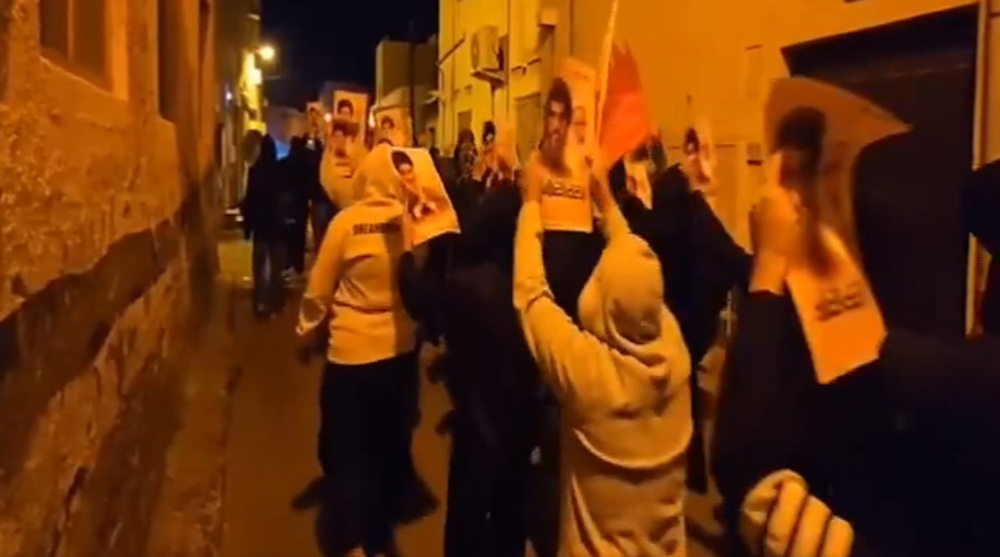
Bahraini mourners hold symbolic funeral procession for late Hezbollah leader
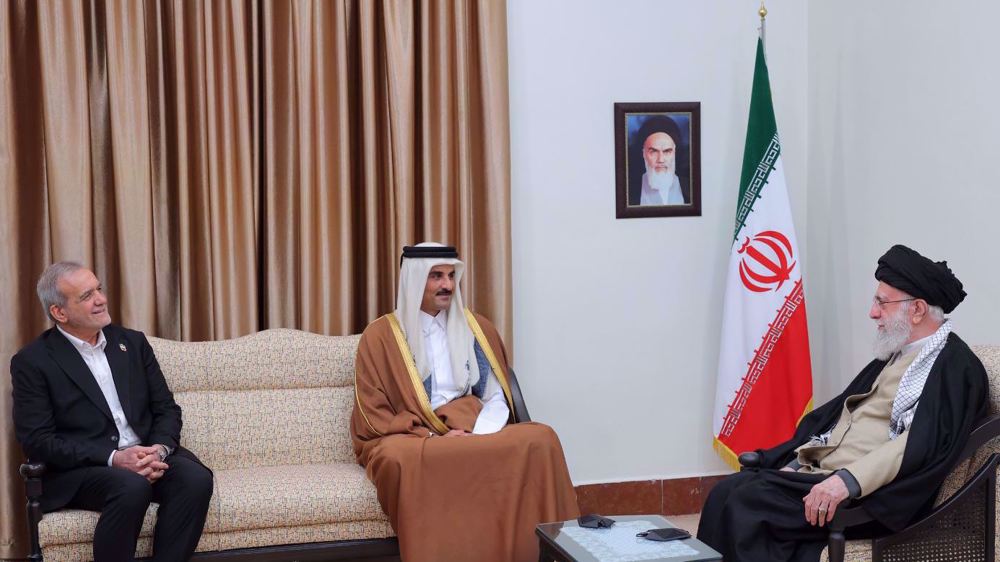
Leader puts premium on boosting ties with neighbors in meeting with Qatari Emir
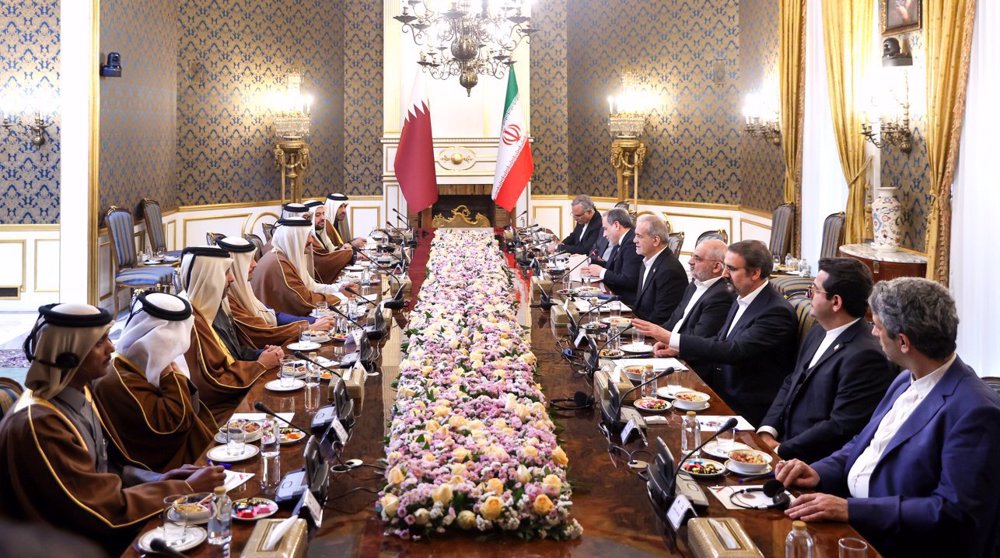
President Pezeshkian: Iran, Qatar opening new avenues for cooperation
Israel’s massacres won’t grant it ‘legitimacy’: Hamas on 31st anniversary of Ibrahimi Mosque tragedy
French leader decries ‘unprecedented diplomatic scandal’ after Israel bars European MPs
VIDEO | Washington’s failed projects
VIDEO | Islamabad exhibition exposes Israeli atrocities in Gaza
Trump rescinds arms sales regulation in favor of Israel, sources say
Iran’s president vows to accelerate cooperation with Russia
Palestinian says Israeli jailers poured acid on him during interrogation
Iran, Turkmenistan seek increased cargo transit via railways


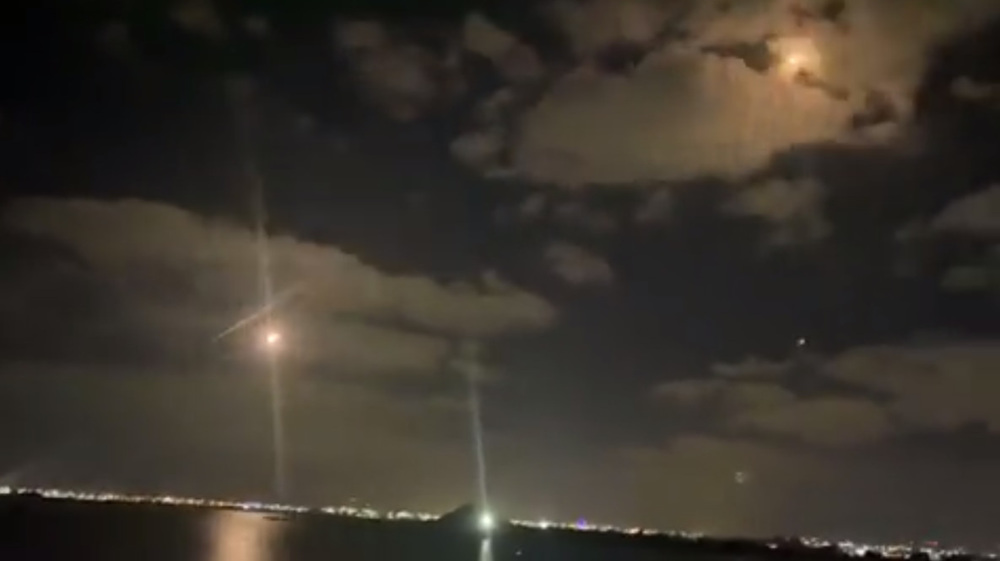
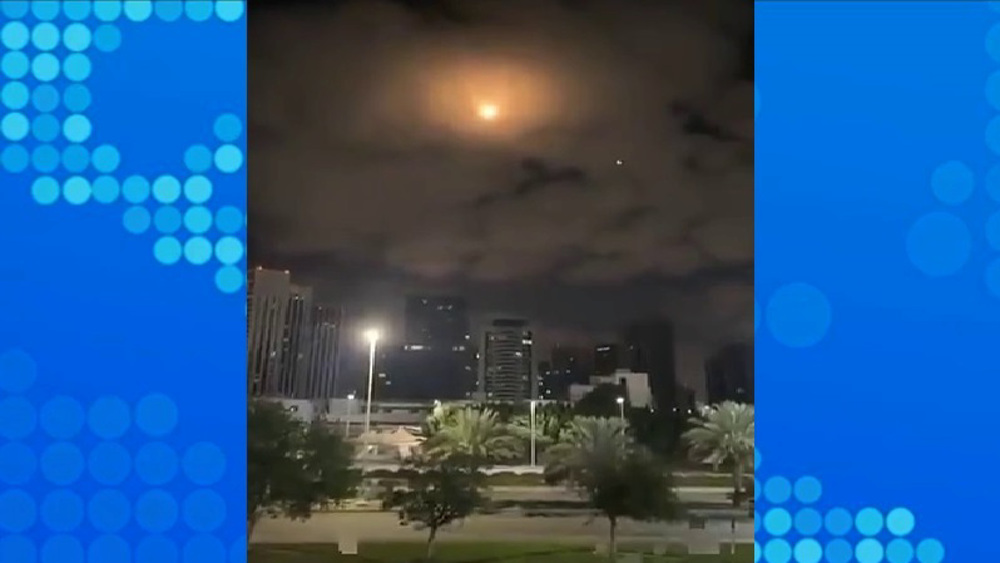
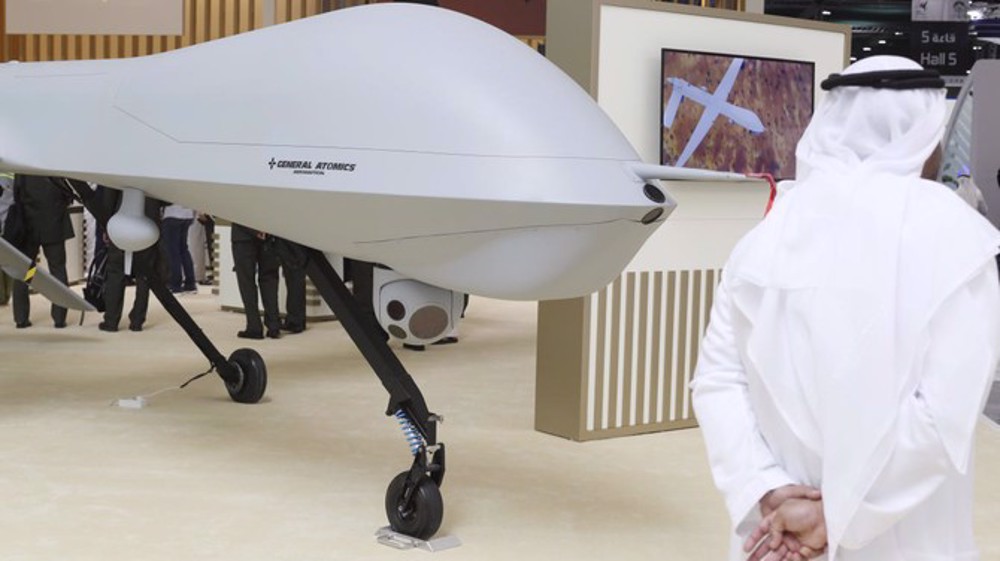
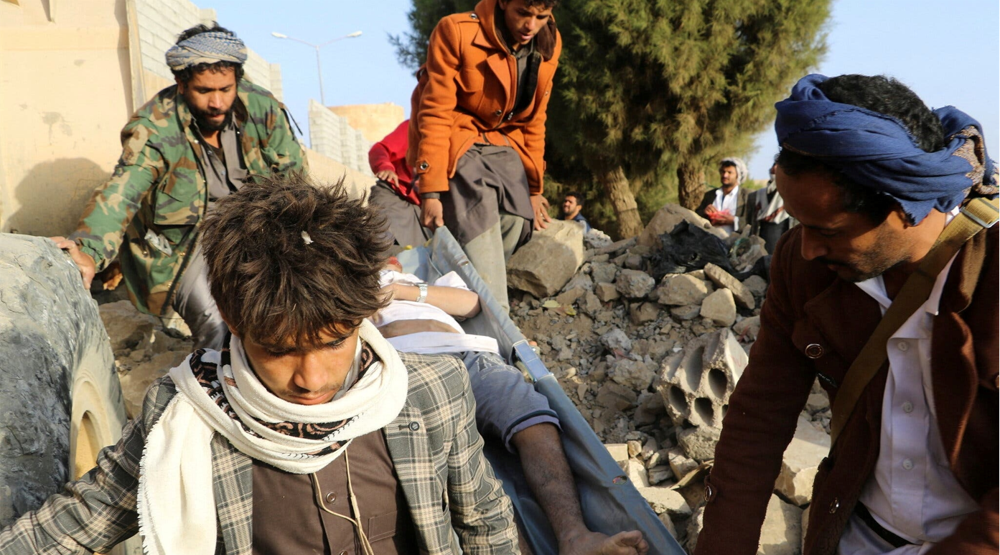
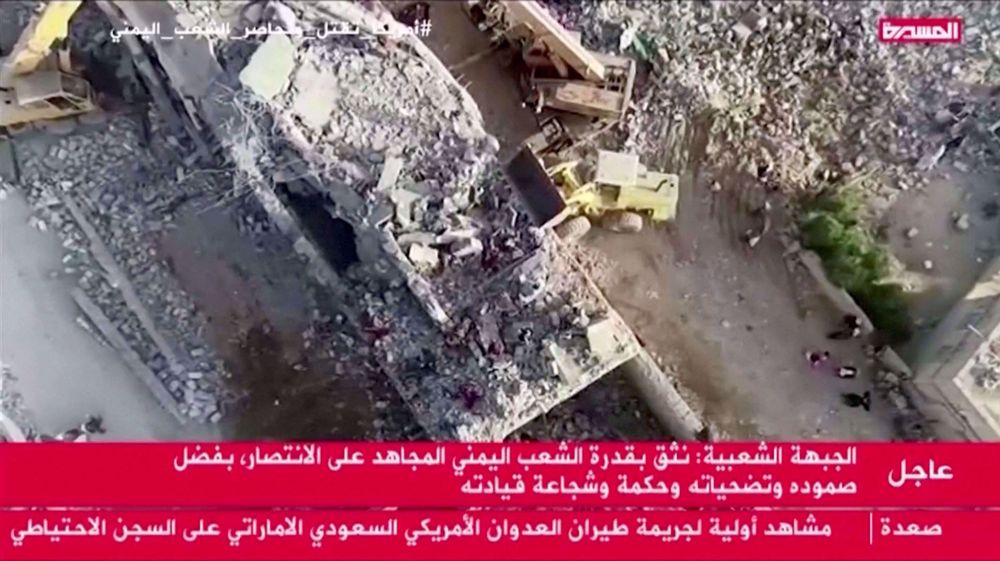



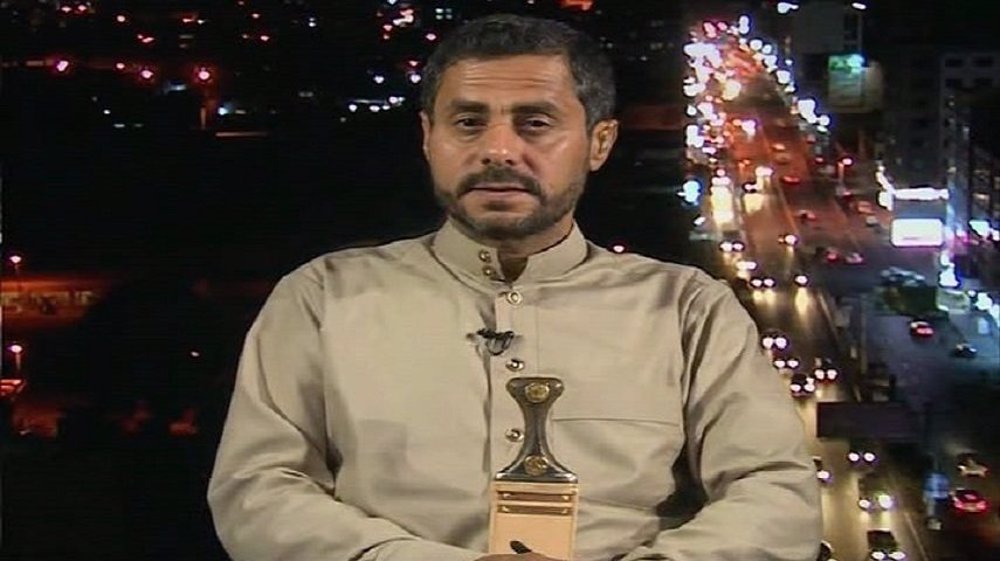
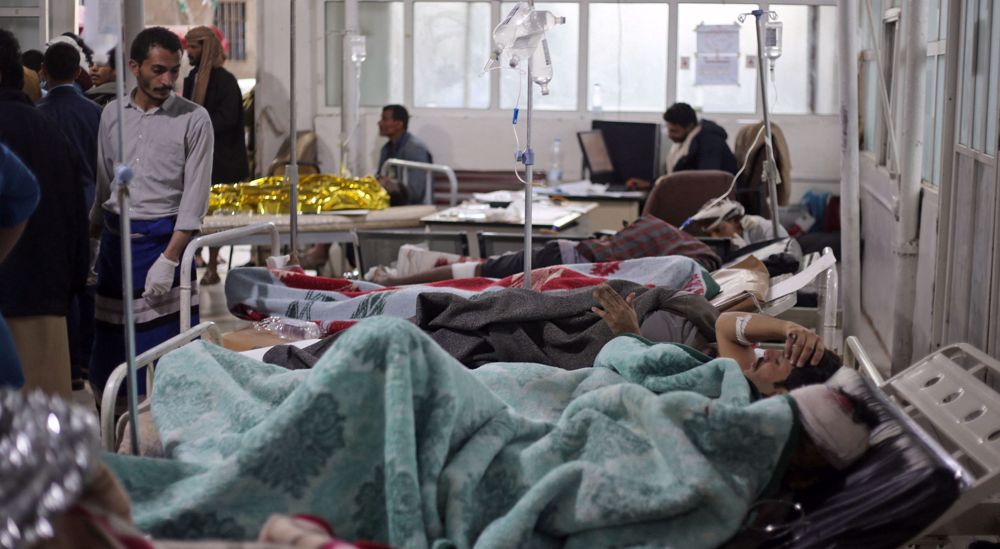
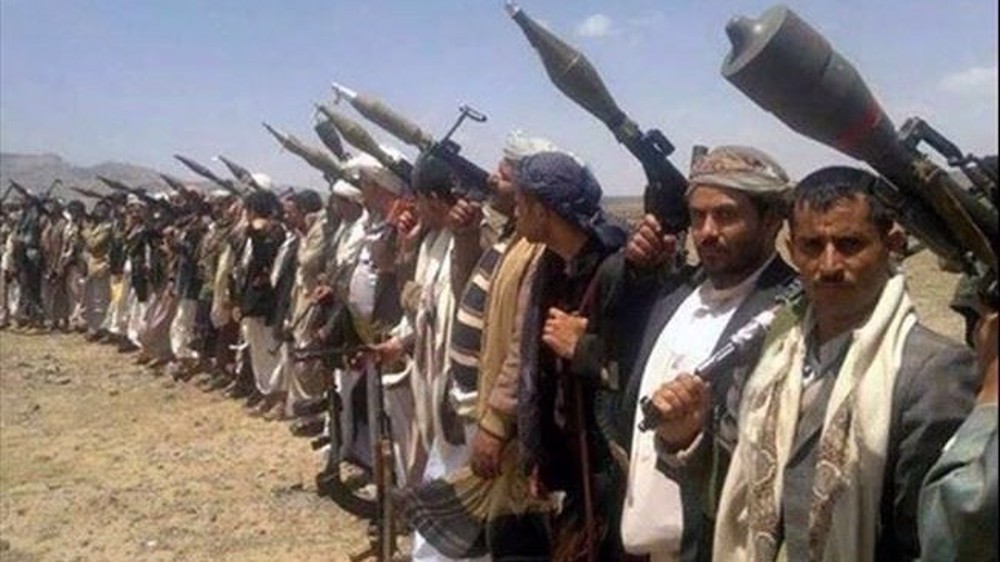
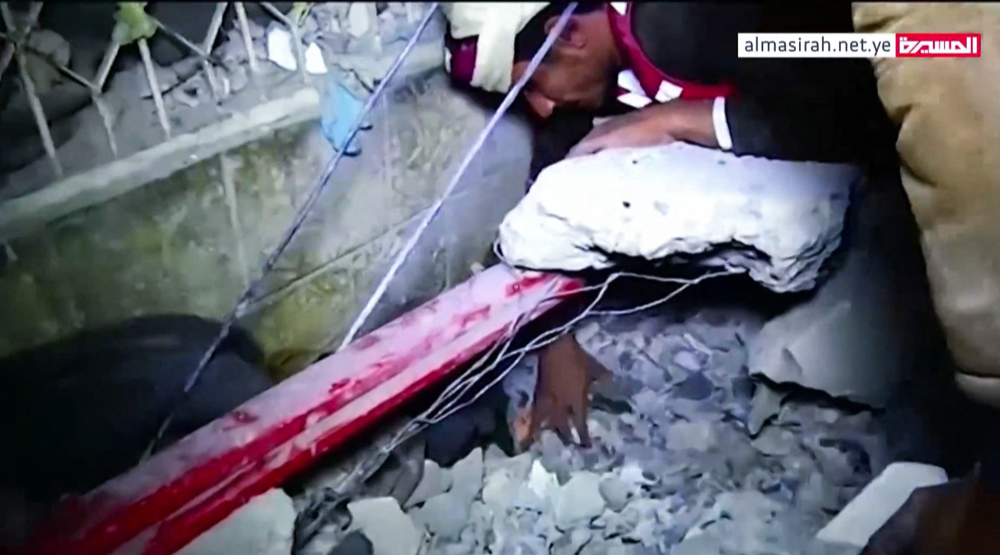
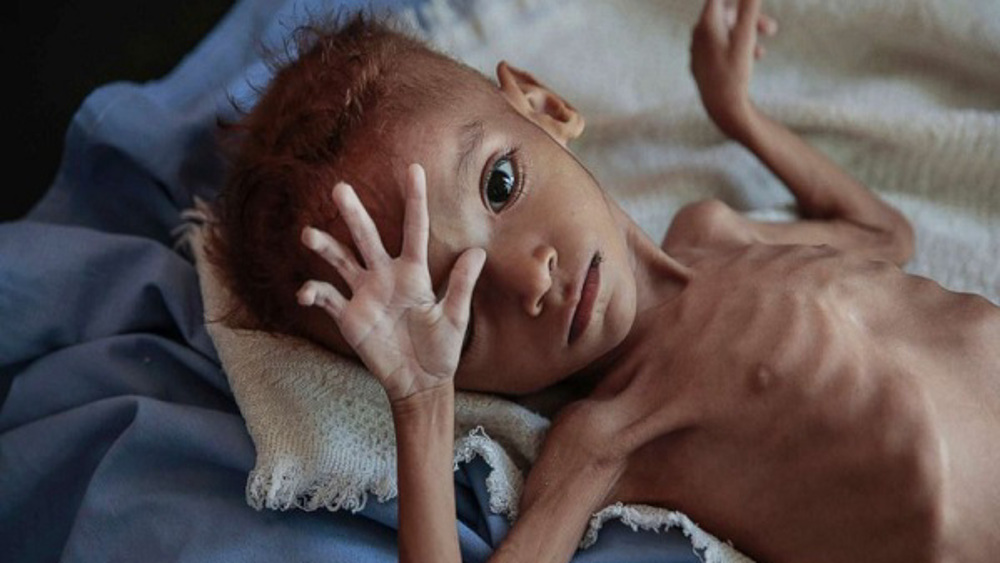
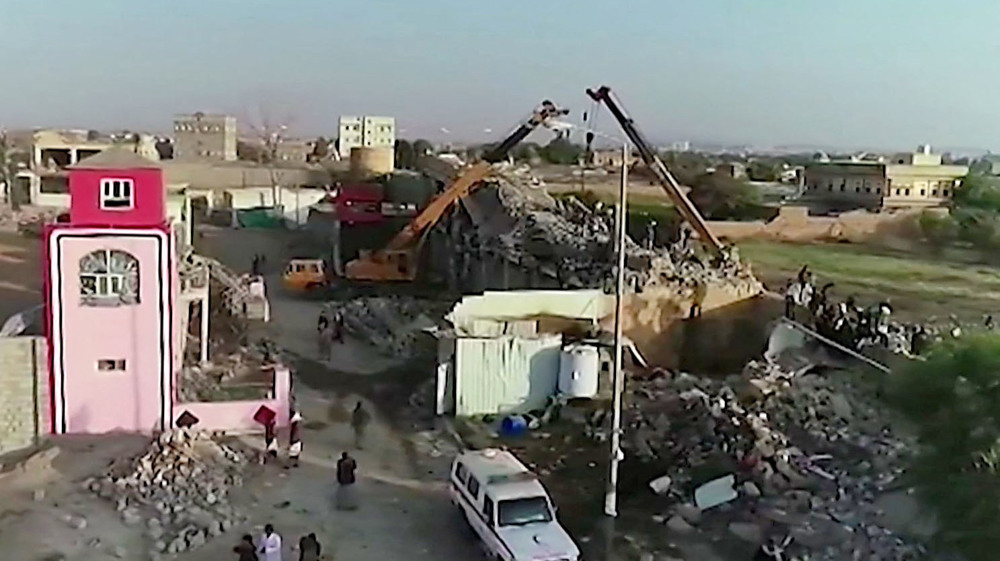

 This makes it easy to access the Press TV website
This makes it easy to access the Press TV website